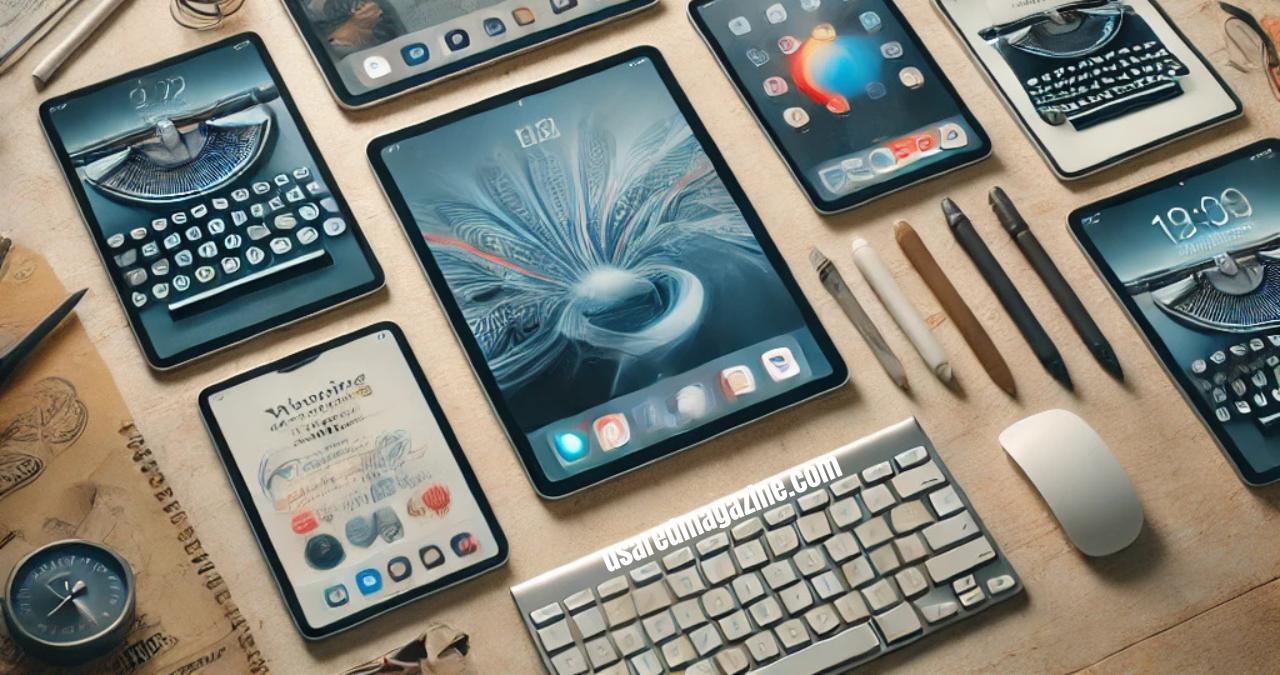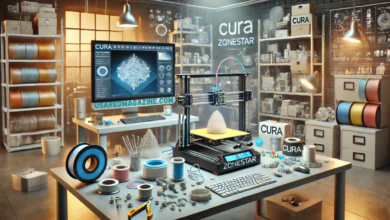When enhancing your writing experience, choosing the right tablet can make all the difference. Tablets offer portability, ease of use, and versatility that traditional laptops often can’t match. Whether you’re a novelist, blogger, journalist, or student, having a tablet that suits your writing style is essential. At http:// tabletwritings.com blog, we provide insights, reviews, and expert recommendations to help you make an informed decision. In this guide, we’ll walk you through the key factors to consider when selecting a tablet, the types of tablets available, and tips on choosing the perfect one for your writing needs.
Why Writers Need Tablets
Tablets are more than just devices for consuming content. They have become invaluable tools for creating content as well. Writers, in particular, can benefit significantly from tablets due to their:
- Portability: Lightweight and easy to carry, tablets are perfect for writers on the go.
- Versatility: Tablets can handle various writing tasks, thanks to apps for word processing, note-taking, and creative writing.
- Battery Life: Tablets often have longer battery life than laptops, meaning than laptops, meaning you can write for extended periods without worrying about recharging.
- Cost-Effectiveness: In many cases, tablets are less expensive than laptops, providing similar writing functionality.
Factors to Consider When Choosing a Writing Tablet
Remember your writing habits, preferences, and environment when choosing the right tablet. Here are some key factors to consider:
Screen Size and Resolution
The screen is one of the most critical aspects of a tablet for writers. Depending on your writing style, you may prefer a larger screen for easier reading and typing or a smaller one for enhanced portability.
- Smaller Screens (7-8 inches) are ideal for writers prioritizing portability. They are easy to carry around and fit comfortably in a bag.
- Medium Screens (9-11 inches): These balance portability and usability. They are ideal for most writers who want a comfortable writing experience without compromising on size.
- Larger Screens (12+ inches): Best for writers who prefer a more laptop-like experience. Great for editing, multitasking, and viewing multiple documents at once.
Keyboard Compatibility
Typing on a touchscreen may be different from everyone’s preference. Fortunately, most tablets have optional keyboard attachments that can turn your tablet into a mini-laptop. When choosing a tablet, check for:
- Detachable Keyboards: Some tablets, like the iPad Pro, offer detachable keyboards that are easy to connect and use.
- Bluetooth Compatibility: If a tablet doesn’t have an official keyboard, you can always connect a third-party Bluetooth keyboard.
- Typing Comfort: Ensure the keyboard provides a comfortable typing experience, especially if you plan to write for long hours.
Battery Life
Nothing is more frustrating than your tablet dying mid-sentence. Check for tablets with long-lasting battery life, ideally 8 hours or more. Battery life can vary based on screen brightness, an app running, and usage patterns, so choosing a tablet that matches your daily needs is essential.
Operating System (OS)
The tablet’s OS will determine the kind of apps you can use. The three central operating systems are:
- iOS (Apple): This is excellent for writers already in the Apple ecosystem. iOS tablets like the iPad are known for their seamless user interface and wide range of productivity apps.
- Android: Offers more flexibility and customization than iOS. Android tablets are also more budget-friendly, and writers can use numerous apps.
- Windows: Windows tablets function almost like regular laptops. They are ideal for writers who need more traditional word-processing software, like Microsoft Word or Scrivener.
Storage Capacity
Depending on your writing habits, storage can be a crucial factor. A tablet with 32GB storage might suffice if you only plan to write text. However, if you plan on storing images, videos, or oversized documents, consider one with 64GB or more. Tablets with expandable storage options are excellent for writers needing more space.
Writing Apps and Software Compatibility
Check if the tablet you are considering supports the apps you use. Writers might need apps like Microsoft Word, Google Docs, Scrivener, or Evernote. It’s essential to ensure that these apps run smoothly on the tablet of your choice.
Top Tablet Recommendations for Different Writing Styles
Depending on your writing style and needs, here are some top tablets recommended by http:// tabletwritings.com blog:
- Apple iPad Pro
- Best for: Professional writers, bloggers, and journalists.
- Why Choose It: With a large display, excellent battery life, and seamless integration with Apple’s ecosystem, the iPad Pro is perfect for writers who need to multitask. The Smart Keyboard and Apple Pencil make it even more versatile.
Samsung Galaxy Tab S8
- Best for: Writers who prefer Android and customization.
- Why Choose It: The Galaxy Tab S8 offers a stunning display, expandable storage, and compatibility with various Android apps. It’s lightweight, making it easy to carry around.
- Microsoft Surface Pro 9
- Best for: Writers who need a tablet-laptop hybrid.
- Why Choose It: The Surface Pro 9 runs Windows, which means you can use full desktop versions of Microsoft Office and other productivity software. It’s great for writers who are used to a traditional PC experience but want the portability of a tablet.
Amazon Fire HD 10
- Best for: Budget-conscious writers.
- Why Choose It: The Fire HD 10 is affordable for writers needing a simple, functional tablet. While it doesn’t have the premium features of other tablets, it’s reliable for basic writing tasks and comes with Alexa integration.
Tips for Enhancing Your Writing Experience on a Tablet
- Invest in a Quality Keyboard: Typing on a touchscreen can be challenging. A good-quality keyboard can make all the difference, especially for long writing sessions.
- Use Cloud Storage: Save your work on cloud storage services like Google Drive or Dropbox. This ensures you can access your files from any device and won’t lose your work.
- Try Different Writing Apps: Experiment with different writing apps to find one that suits your style. Some writers prefer the simplicity of Google Docs, while others might find inspiration using apps like Scrivener or Ulysses.
- Adjust Screen Brightness and Text Size: Prolonged writing sessions can cause eye strain. Adjust the screen brightness and increase text size to make your writing more comfortable.
Conclusion
Choosing the right tablet for your writing style can significantly enhance productivity and comfort. You can find a tablet that meets your needs by considering screen size, keyboard compatibility, battery life, and software support. At http:// tabletwritings.com blog, we provide detailed reviews and expert advice to help you make an informed decision. Whether you’re a seasoned writer or just getting started, the right tablet can transform your writing process and make it more enjoyable.
Frequently Asked Questions (FAQs)
1. What is the best tablet for writing on a budget?
The Amazon Fire HD 10 is an excellent budget-friendly tablet. While it lacks some of the advanced features of more expensive models, it is affordable and reliable for basic writing tasks.
2. Can I use a regular Bluetooth keyboard with any tablet?
Yes, most tablets support Bluetooth keyboards. You can connect a third-party Bluetooth keyboard to enhance your writing experience, even if the tablet doesn’t have an official detachable keyboard.
3. Are there any writing-specific apps recommended for tablets?
Yes, apps like Microsoft Word, Google Docs, Scrivener, Ulysses, and Evernote are popular among writers. Each app has unique features, so it’s best to try a few and see which suits your style.
4. How can I ensure my writing tablet doesn’t strain my eyes?
To reduce eye strain, adjust the screen brightness, use a blue light filter, and increase text size. Taking regular breaks and using anti-glare screen protectors can also help.
5. What should I look for in a tablet if I plan to write for long hours?
Focus on a tablet with a comfortable screen size, good battery life, and keyboard compatibility. It’s also a good idea to choose a lightweight model that is easy to hold if you plan on writing while traveling or commuting.
You May Also Read: https://usaredmagazine.com




